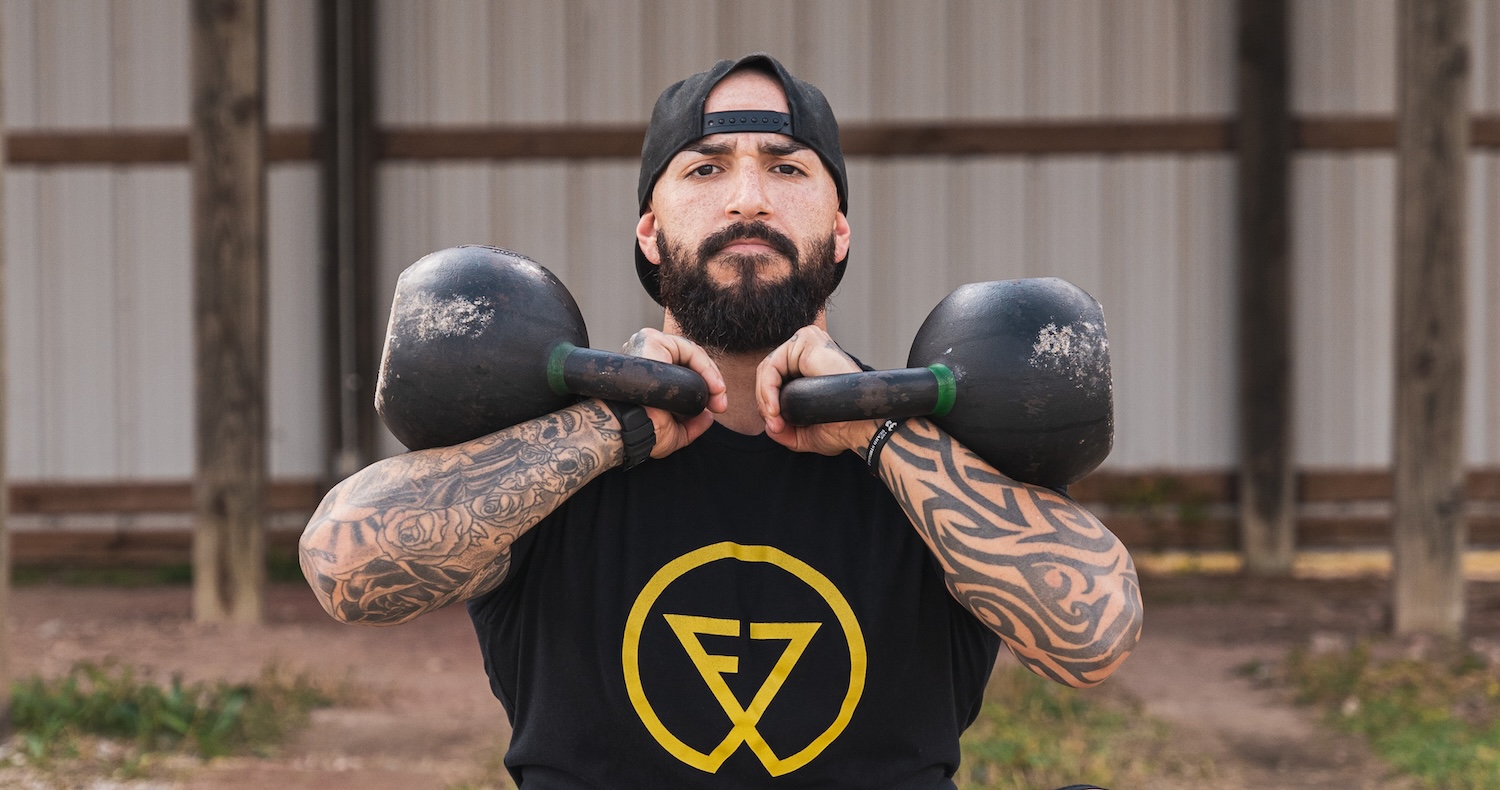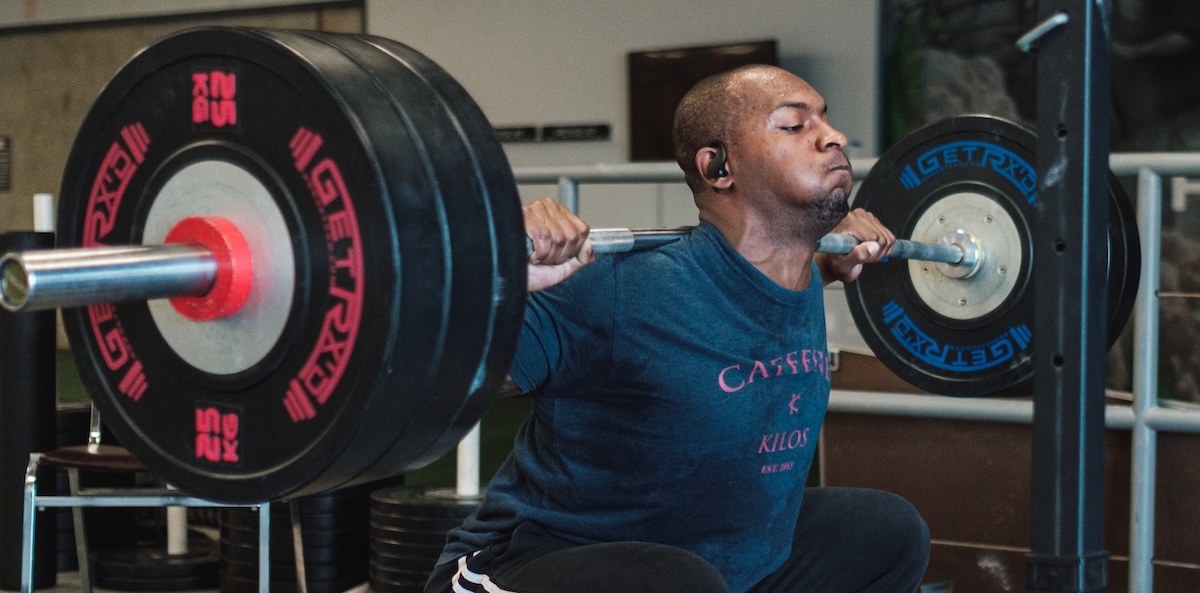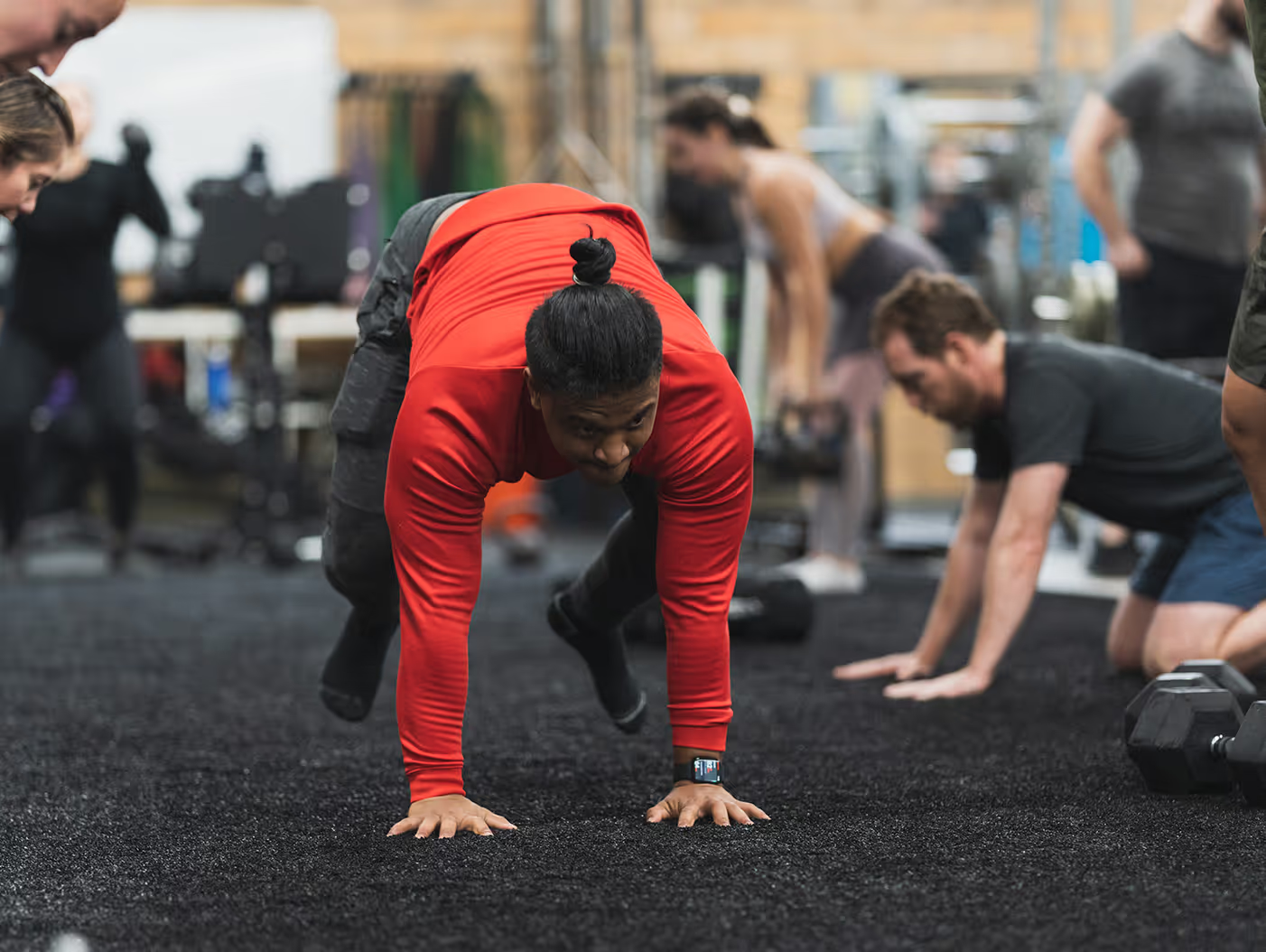Push Yourself: The Mind Quits Before the Body
If you feel sluggish, inflamed, numb, disconnected, who’s really in control?
THINK ABOUT IT...
You’ve been conditioned to think about your body as something mechanical, as an object to drag through the day- something to push, fix, punish or decorate…
But never as sacred…
Never as intelligent… as a vessel of Divine intention.

The ancients knew this. The body was never a burden, it was a temple. Not just in theory, but in function.
Every breath you take, every cell in your gut, every spark in your nervous system, it’s all part of a living code designed for perception beyond the 5 senses. But the modernism of the recent centuries is teaching you constantly to ignore it.
Start with the gut.
The gut produces more neurotransmitters than the brain, it’s your second brain, regulating your mood, your energy, and your spiritual receptivity. Yet it’s constantly under attack.
Pesticides, processed foods, antibiotics, synthetic preservatives, all designed not just to destroy gut flora, but to destroy our capacity to feel clearly. When your gut is compromised, your mind is clouded. When your digestion is inflamed your thoughts are unstable.
Those in the “remedy” business don’t want you to be sharp, focused, and intuitive… they want you bloated, distracted, emotionally volatile, and they’ve engineered the food system to be sure.

But it’s not just the food. It’s your water, your air, your light.
Tap water filled with endocrine disrupters. Air saturated with industrial toxins. Artificial light that scrambles your circadian rhythm and drains your life force. And through it all you're told this is normal, you're told to adapt. To medicate. To caffeinate. To carry on. And when your body starts breaking down they offer pills instead of root solutions.
They give you diagnosis after diagnosis but never ask the real question -
what are you feeding the instrument of your divinity?
That system doesn’t profit from your clarity…it profits from your chaos.

This is why healing your body isn’t just a wellness trend.
It’s an act of Rebellion.
It’s the foundation of awakening.
Your consciousness can’t fully rise in a body that’s drowning in inflammation, toxicity, and fatigue.
You can’t connect to the Divine when your nervous system is in survival mode. You can’t remember who you are when your cells are constantly battling the poisons of modern life.
Liberation isn’t only mental, it’s cellular. And every choice you make, every meal you eat, every breath you take is either feeding your awakening or feeding your suppression.
And here’s the real breakthrough.
Your body wants to wake up. It’s always communicating. Always recalibrating. Always moving towards healing when you give it even half a chance. And when you start treating it like the intelligent energetic vessel it is, everything shifts. Your thoughts clear, your emotions balance. Your intuition sharpens. That’s not a coincidence. That’s coherence.
That’s not a coincidence. That’s coherence.
The state where your body, mind, and spirit align into one unified field. That’s when you stop living from your head, and start living from your whole being. That’s where awareness stops being a concept, and starts becoming your baseline.
Most coaches bypass this.

They tell you to rep your problems away while still eating food that numbs your senses and scrolling until your dopamine is fried. But you can’t hack your way to awakening. You have to live it, feel it in your skin. In your gut, your breath. This is true embodiment. Not the aesthetic kind, but the kind that rewires your nervous system and clears the fog from your perception. Because the Divine doesn’t live in the sky or in scriptures. It lives in your blood, your bones, your breath. You don’t have to look outside to find it. You just have to clean the vessel it’s been trying to move through all along.
TAKE BACK CONTROL OF WHO YOU ARE.
Rebel against being blind… Rebel against the leeches of your energy.
Find who you were meant to be.
Find who you are.
We have courses designed to awaken you. Learn the basics of how your body moves.
DISCOVER HOWTake the purple pill and go down the rabbit hole with us. We are here for you, all the way.
TAKE THE LEAPBy Stephanie Pappas
The day begins at 4:30 a.m. with a half-mile run to breakfast. Then comes three to four hours of grueling physical training: burpees, pushups, flutter kicks, all high-intensity, anaerobic exercises designed to strain the muscles and sap the breath. Interspersed are hikes and runs up the scrubby California mountains, lugging packs weighing up to 90 pounds — or carrying, fireman-style, a 200-pound buddy.
This is the Marine Corps’ Basic Reconnaissance Primer Course. It’s the first step toward a specialty in Recon, which sends Marines into enemy territory to survey the terrain and the enemy before an engagement. And morning PT is only half the story. The Marines striving to complete the course spend their afternoons in a cold pool, swimming, diving and treading water to exhaustion. These sessions were universally dreaded, says Andrew Pappas, a first lieutenant who recently completed the course. But then, that’s the point. The primer course is designed to weed out Marines who can’t hack the mental and physical challenges of being a Recon Marine.
This is not the kind of workout most of us can – or should strive toward. Only about 30 percent of those who start the primer course complete it. And even those who make it through often find themselves with temporarily wrecked immune systems and overuse injuries.
But this military-style madness does hold one lesson for those of us trying to eek the most we can out of the hour or so we do have to work out each day. As Pappas puts it: “The mind quits before the body.”
Pappas (who is, full disclosure, my brother) is the kind of guy who gets antsy if he goes a day without a 90-minute workout. But the Recon primer course put him far outside of his comfort zone.
“It’s not an enjoyable situation to be in,” he said.
Some of what kept him going is the sort of thing that’s hard to replicate in the gym. He was being paid to be there, after all, and the course instructors held his future career in their hands. But proving mental toughness is part of what Marines have to do to succeed in the course, and many of Pappas’ strategies apply to lower-key challenges, like training for a race or beating a personal best:
1. Make yourself accountable to other people
In the Recon primer course, Marines are organized into teams, and everything’s a competition. If one person screws up, everyone is punished. If a team outperforms everyone else, the reward is extra rest time — a luxury the exhausted Marines crave.
Group exercise is motivational in civilian life, too. If you don’t want to let down your running buddy, you’re less likely to hit “snooze” on your alarm clock instead of lacing up your sneakers. One 2012 study even found that a virtual partner can push people to cycle longer than they would on their own. In the study, people “met” a workout partner via video chat and were told this person would be cycling at the same time as them in another location. One group simply exercised at the same time as their virtual partner; another group was told they were working as a team and that the person who stopped exercising first would determine the team’s performance. A third group exercised alone.
The final tally showed that the participants who exercised as a team cycled twice as long as those who cycled solo (22 minutes versus 11 minutes). A little competitive pressure helped, too. The team cyclers exercised slightly longer than those who simply cycled at the same time (22 minutes versus 20 minutes). And those cyclers didn’t even have to look their workout buddy in the eye.
2. Keep it structured
Joining a group fitness class or setting a time to work out with a friend are ways to get a little structure into your routine. And structure is key.
“Obviously in this course, it was incredibly structured, structured to the minute,” Pappas says. “That was a structure that was already in place, but for somebody who is pursuing their own physical fitness, they have to create their own structure.”
One study suggests the best way to create this structure is to outsource your motivation to physical cues. Perhaps that’s an alarm that goes off a half-hour early each morning, or the sight of your workout bag sitting by your office door at the end of the day. The idea is to start moving without thinking about it too much — because if you have to think about it, you might talk yourself out of it.
3. Break it down
In the Recon primer course, each day brought the same pattern of physical punishment and exhaustion. To survive, Pappas said, he had to become hyperfocused.
“It’s like, all I have to do is get through this land PT event, all I have to do is get through this pool day. All I have to do is get through tomorrow,” he said. “If you try to worry about everything and once, it’s too overwhelming.”
The same principle applies to exercise. Showing up at the gym in January with a vague New Year’s Resolution like “get in shape,” and you may find yourself back on the couch by March. Instead, prevent burnout by making a goal and breaking it into smaller goals.
Perfectionists, in particular, may benefit from this strategy. A 2015 study in the journal Personality and Social Psychology Review found that high ambitions aren’t necessarily a bad thing, as long as you can avoid beating yourself up in the event of failure. Setting achievable, step-by-step goals can help keep fear of failure at bay.
“You can’t be afraid to fail,” Pappas said. “If you’re afraid to fail, you’ll never put yourself in an uncomfortable situation.”
4. Talk to yourself
For Marines preparing for combat, harsh physical training is a way to mimic the stress and exhaustion of the battlefield. The military wants to know that its people will keep going under horrifying circumstances.
That’s why courses like the Recon primer are more about mental fitness than anything else. But disciplining the mind has benefits for everyone. Rumination, or repetitive, negative thinking, is associated with anxiety and depression. And meditation, the process of clearing the mind of chatter, is associated with both better mental and physical health.
Pappas leaned on mantras like “It’ll be over soon,” and “the mind quits before the body” to keep moving when his body ached and his lungs screamed for breath. The ability to overcome his physical instincts was crucial. In the pool, for example, some of the hardest exercises pushed participants to panic, a panic that started to spread as men began to feel like they might drown. Pappas was able to outthink his body’s urge to claw for air, instead diving down to swim farther from the chaos.
“Everyone, I think, has a little voice in their head that says, ‘Don’t do that, that makes you uncomfortable, just do what makes you comfortable, you don’t need to do all that. You can just quit and its fine,'” Pappas says. “You’ve just got to crush that little voice, and just be like, “No.” Put yourself outside of your comfort zone, be uncomfortable and don’t quit.”






